Skip the Parade. Watch the Republic in Action.
Christine Merser, July 1, 2025
I’m a Mayflower girl. Not that I ever cared much about it. Thomas Hinckley, the first governor of the Commonwealth of Massachusetts, was my ancestor. I’m proud of him. You know why? He walked away from power. Yep. Long story. Not this week. Seems like he might’ve been a good guy, although I can’t say the people back then have much of a leg of decency to stand on, so I never thought I should brag about my DNA.
Most of my Fourth of Julys when I was little were spent on the Cape, back where I could see the graveyards filled with my people going back centuries. But it was the 4th that brought home what I thought was the pride of country I was supposed to feel. Flag-waving parades, long days on the beach, hamburgers and hot dogs and ice cream cones, and then huge fireworks displays. I’m pretty sure rain wasn’t allowed, because I don’t remember rain on the 4th of July. Ever. I also don’t remember ever seeing a Black person. Or even thinking about one.
We’re talking about the early 60s. Yes, I was in Hyannis Port. And yes, so were the Kennedys. Yes, he was President. Laura Lee’s father was a Secret Service agent, and one time we went out on a boat with Caroline and John John. We were told to be nice to them. Instead, we sat across from them and stared.
But it all seemed so American to me. One big happy family. And I loved my country. Deeply. American flags everywhere. Everywhere. None of them were upside down, as I want them all to be right now.
I now realize that my America didn’t belong to people with skin darker than mine. I realize people in the South were as terrified on this day as any other day. Maybe even more so. Maybe this was the day the Confederate cowards got angrier about how things turned out. Maybe this was the day they took it out on people who weren’t allowed to sit at the same tables as them. Or at the front of the bus. Or drink from the same water fountains. None of which were part of my life. But I know now they should have been.
I write this as an apology. It’s probably not my fault that I didn’t know, but it is absolutely my parents’ fault that they looked away. And it’s the reason I can’t, in good conscience, celebrate this 4th of July. Not when people are being picked off the street for walking outside their front door.
But there were those in the South who did try to fix what was still wrong. Who did make change. And those are the Americans I choose to celebrate this 4th of July.
Remember how it rained during Trump’s birthday party that nobody came to? Guess what. Much of our country is going to be smothered in rain this weekend. Huge thunderstorms. I think God is crying. He ought to be. My mother used to tell us to stop crying. “I’ll give you something to cry about,” she’d threaten. Well, we have certainly given God something to cry about.
So, I say it’s a movie/tv kind of weekend. First on the list. To Kill a Mockingbird. One of the best films ever made.
Did you know I’m a film reviewer? My counterpart for much of the past decade was a wonderful person who preferred to go by the name O’Toole on our podcast. She passed away of cancer a few years ago. We recorded an episode reviewing To Kill a Mockingbird back in 2016 or 2017, when things were very different. I listened to it yesterday. It still holds. It’s a wonderful introduction to the film and a reflection on what was going on in the 60s when it was made.
Did you know no studio wanted to make it? They didn’t like the content. Gregory Peck got it made. The reason it’s a wonderful film to watch with your family is because it’s so rich with so many things that are so relevant now.
Did you know Gregory Peck did his seven minute summation in one take? Can you imagine?
Did you know the actor who played Tom Robinson, the man wrongly accused, couldn’t even be in the courtroom during Peck’s cross examination scenes because Peck couldn’t stop crying when he was? Those were trying times, the 60’s.
Yes, the film is about injustice, about race, truth, lies, and how far some people will go to destroy a man. That’s still happening now. But it’s also about something else. It’s about Atticus Finch’s refusal to get angry. He never gets angry. No matter what they do.
And he says over and over again that until you walk in another man’s shoes, you can’t possibly understand who he is or how he got there.
Does that go for you too, MAGA people? I’m not sure it does. I’m watching the movie again this weekend. And, I recommend it for others too. It’s on Apple TV and Amazon Prime. Just GOOGLE it.
Our podcast episode is short. I think it’s worth your time.
You know what else? Go to your local bookstore. Yes, an actual bookstore. And buy a few copies of To Kill a Mockingbird. Give them away. To a friend. A high schooler. A college student. Send them in the mail this weekend. Someone who doesn’t yet know what this country is made of. Slip a note inside. Date it,
July 4 2025. The year America was interrupted.
Aaron Sorkin’s Broadway version of To Kill a Mockingbird was one of the most successful productions ever produced on Broadway. But his version is harder on Atticus. Sorkin thinks the real hero is the housekeeper, the Black woman who raised the children and taught them right from wrong.
Maybe that’s the debate to have this weekend. Was Atticus Finch a hero? Or was he wrong to be so kind to the white people who destroyed a man’s life?
Either way, it’s an extraordinary story. And Harper Lee was an extraordinary writer.
And, here are some other things to watch as well.
Of course, the best TV series is The West Wing, by the great Aaron Sorkin. No, no, that’s not a question. I know you can’t watch the entire thing this weekend, although I probably could, so I picked a few episodes that showcase the very best of our politics. If you’ve never seen it, you can start with these. They stand on their own. And, if you have seen it, watch these again. It will remind you of what we can be. Have been and will be again.
Season 5, episode 17 of The West Wing, titled The Supremes, might just be the smartest, most satisfying hour of television about the Supreme Court ever made. It opens with a problem. A Supreme Court justice has died unexpectedly, and the White House wants to replace him with a moderate to avoid a bruising confirmation fight. But the plan hits a wall when another cranky, aging justice, Justice Brady, who’s been expected to step down for years, refuses to retire to make room for a deal because he doesn’t want to be replaced by a “milquetoast centrist.” That’s when things get clever. The senior staff brings in two ideological opposites to vet: Evelyn Baker Lang, a fierce liberal played by Glenn Close, and Christopher Mulready, a caustic conservative played perfectly by William Fichtner. And instead of choosing one, they hatch a plan to nominate both, one to fill the current vacancy and one when Brady agrees to step down. The episode is packed with whip-smart dialogue, deep respect for legal philosophy, and an almost romantic belief that brilliance can rise above partisanship. It’s funny, bold, and deeply wishful, the kind of story only The West Wing could pull off without cynicism.
Season 2, episode 10 of The West Wing, An Khe, hits differently. It’s not just political drama — it’s moral weight wrapped in memory, loyalty, and the complicated burden of power. The episode centers on Leo McGarry, the White House Chief of Staff and a Vietnam veteran, when his past collides with the present after a helicopter crash in the Philippines kills American soldiers. One of the survivors is the son of a man who once saved Leo’s life in Vietnam, a man now up for a shady defense contract. As the truth starts to unravel, Leo is forced to reckon with whether loyalty to an old war buddy justifies overlooking corruption in the present.
John Spencer delivers one of his finest performances, portraying Leo as both strong and quietly wrecked, a man who still lives with the ghosts of An Khe. The flashbacks are minimal but searing. Just enough to feel the heat and smell the jungle. President Bartlet, never one to miss a moment for moral clarity, drops the line in Latin — “Corruptio optimi pessima” — the corruption of the best is the worst. And just when you think the emotional weight can’t get heavier, the episode closes with Crosby, Stills and Nash singing My Country Tis of Thee. Not triumphant. Not flag-waving. Just a quiet, aching kind of patriotism that makes you sit with the cost of service, and what it means to try to be a good man in a compromised world.
Ok, my final offer. Mr. Smith Goes to Washington isn’t just a film. It’s a gut punch wrapped in idealism, a civics lesson disguised as a Hollywood drama. Frank Capra’s 1939 classic stars Jimmy Stewart as Jefferson Smith, a wide-eyed, small-town scout leader unexpectedly appointed to the U.S. Senate. He arrives in Washington full of hope, only to crash headfirst into corruption, cynicism, and backroom deals so entrenched they make the swamp look like a kiddie pool.
The brilliance of the film lies in how it holds both truths at once — that American democracy is beautiful in theory, and brutal in practice. Stewart’s performance is staggering. He’s naïve, yes, but also fierce. That climactic filibuster on the Senate floor, when his voice cracks and his body nearly gives out, is as raw as anything on screen today. And while the film paints its villains in broad strokes, it doesn’t let the system off the hook. It asks whether good men can survive in a place designed to wear them down — and whether fighting for what’s right still matters when the odds are stacked.
Eighty-five years later, it’s somehow more relevant than ever.
So bring on the stories. Bring on the history. Bring on the truth. And let’s celebrate the Americans who came before us, the good ones, and maybe even spark the Americans who will come after us.
Who needs a parade.


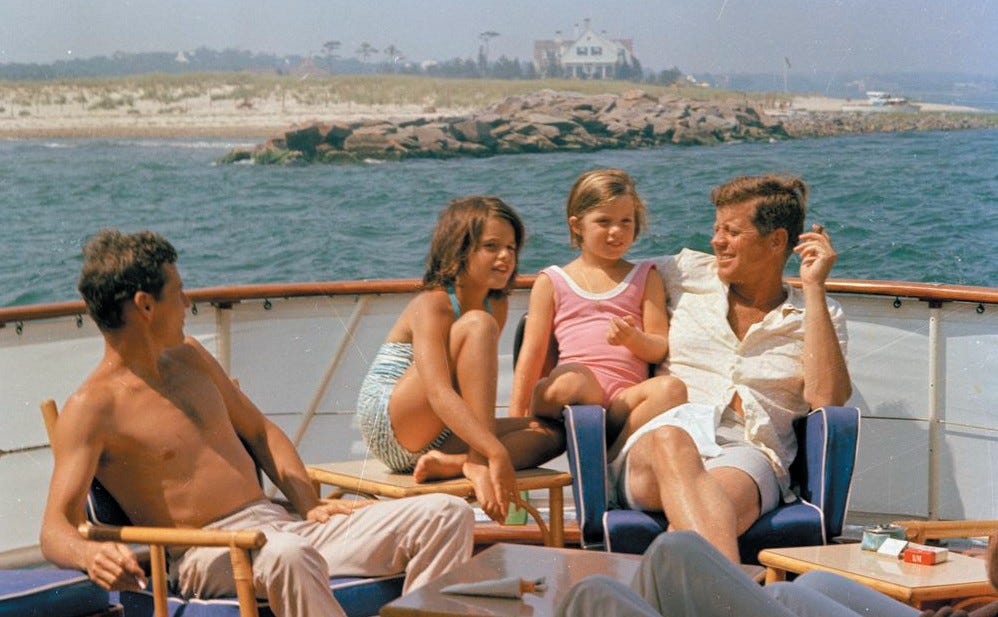
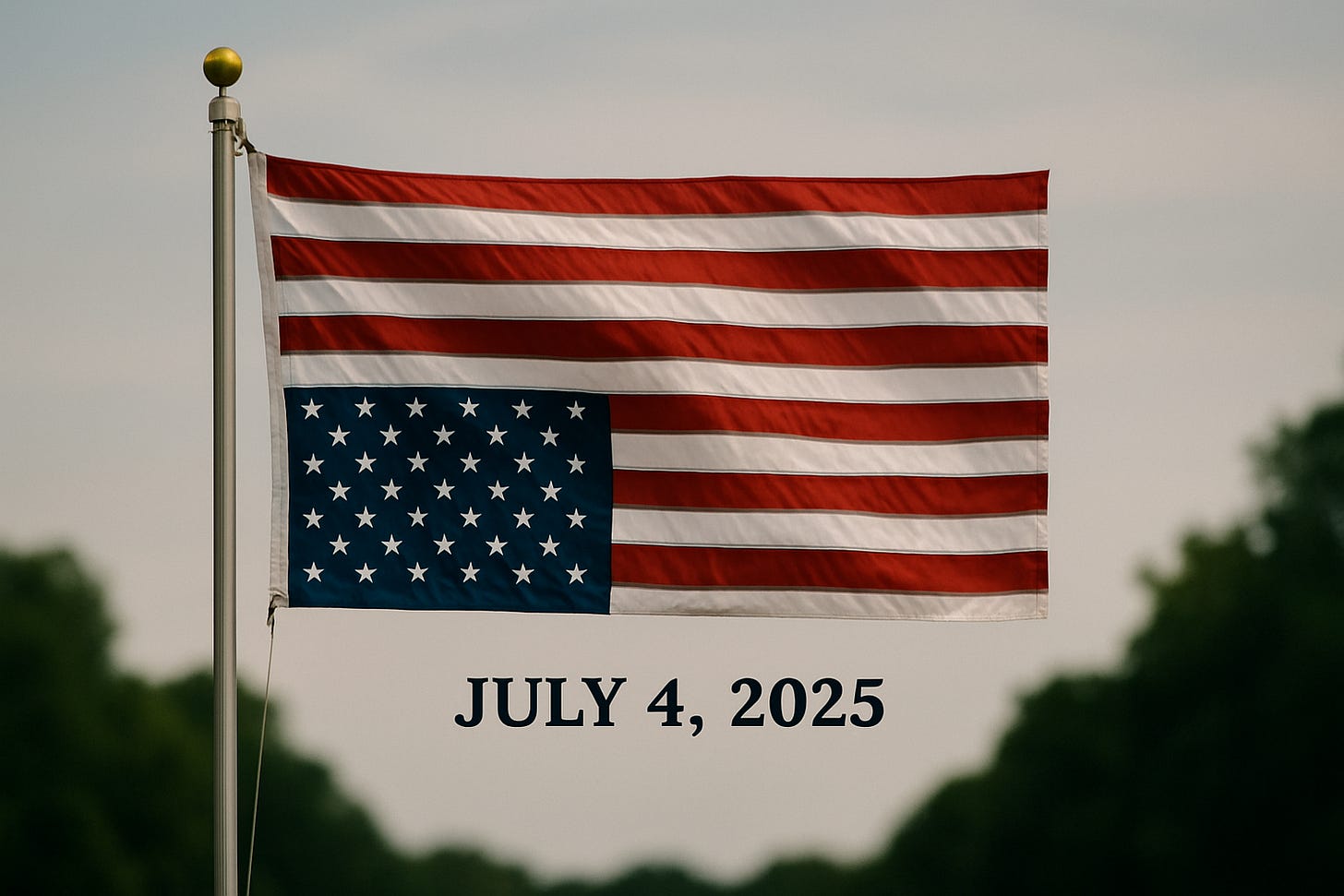
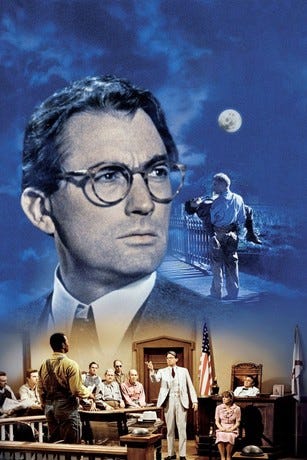
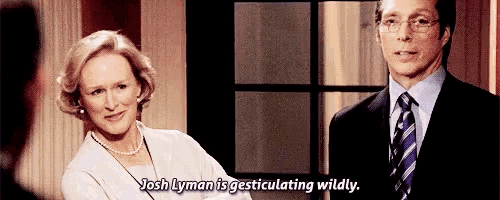
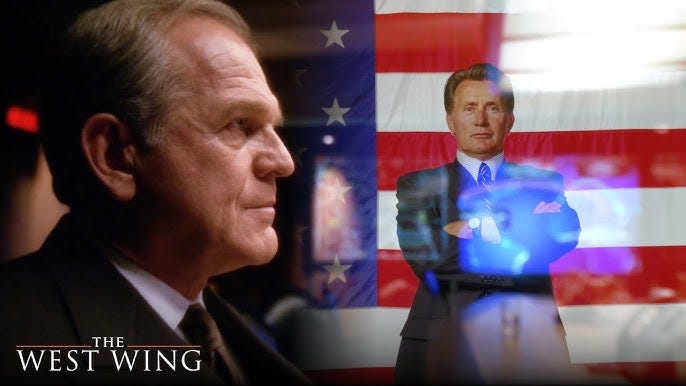
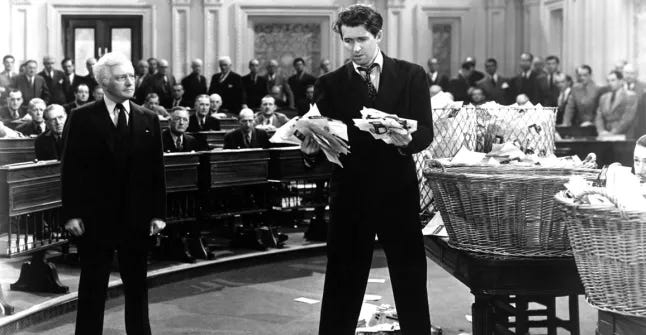
Excellent post, thank you. And definitely sharing
with friends. 🙌🏽🙌🏽🙌🏻🙌🏻🙌🏾🙌🏿🙌
One of your best posts! This alone may have more positive impact than any actions. I am buying the book for my grand children and others….. from independent book stores!